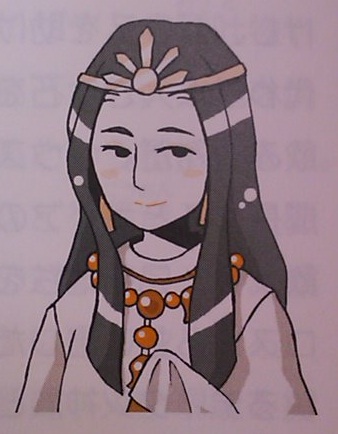Interesting facts and opinions about Japanese and Greek mythology
All facts from 「日本神話とギリシア神話」 Japanese and Greek Myth by 大脇由紀子 Ōwaki Yukiko (明治書院、2010). All opinions are mine.
- Fact: Japanese did not have a word for “myth” until Basil Hall Chamberlain invented one in 1887. What they instead had was an official history that ranged from cosmic to national in nature. Not even those skeptical of that history borrowed the word “myth” from English; it took a foreigner to do that.
- Opinion: It is thus only natural to wonder, what is the meaning-function of the word “myth”, and why was it not invented in Japanese? In this book, one of the figures mentioned is Empress Consort Iwanohime, simply because she is mentioned in the official histories Nihonshoki and Kojiki. Her life has no supernatural aspect to it.
- Opinion: Japanese Wikipedia suggests the word 神語(り) kangatari was used to refer to myths in the Middle Ages, but a check of academic literature shows that it actually referred to recited poetry, five examples of which can be found here. Also, the true reading appears to be kamugatari. In ancient Greece, indeed, “mythos” was a term used for any recitation. Perhaps our use of the word “myth” is at its very heart a misunderstanding.
- Fact: The author makes a fascinating comparison between Iwanohime and Hera: both individuals were said to have intense jealousy directed not only at their closest relations but at other individuals who associated with them.
- Opinion: Certainly Iwanohime’s jealousy could have served as a cultural standard in the same way that Hera’s jealousy did in Greece. It is fascinating to imagine in this way the world that the writers of Nihonshoki and Kojiki may have lived in. But does that mean Iwanohime was a “mythical” figure, or a god, in the same way that Amaterasu’s story can be pigeonholed as myth? Perhaps it is better to view these figures in the same way the Japanese did: as characters in the official history.
- Fact: The exiled hero Yamatotakeru is shown as wandering all over Japan, much like Odysseus, except that the Odyssey doesn’t fall into the category of “myth” in this book for some reason…
- Opinion: In this book kami is defined as “a word encompassing beings with incorporeal power beyond human knowledge.” Aliens??
- Opinion: I bought this book to learn the full extent of parallels between Japanese and Greek mythology, but it seems like most elements can be dismissed as coincidence. The most confounding parallel is the one any student of mythology should know: the Greek story of the rape of Persephone is extremely similar to the Japanese story of Izanami’s death.
- Fact: When discussing this, the book quotes from Spirited Away (remember Chihiro starting to disappear and eating the food?). Mayhaps Ghibli movies are a better re-presentation of Japanese mythology than anything I could hope to write myself.
- Fact: But the book references Naruto as well…
Posted: April 6th, 2011 | Japan, Secular-Religious 3 Comments »


Greek “muthos” actually meant any story, even if it weren’t a recitation
Perhaps the change in meaning for mŷthos from “story, plot” to “pictoresque but untrue religious tale” came with the religious shift, as a way to diss the old stories?
I’m curious about the importance of the act of eating in myths and folktales (like the thing about trying food from færie land, or original Red Riding Hood becoming a bad girl as a result of unintentional cannibalism). Here’s a modern reversal: http://scans-daily.dreamwidth.org/2870267.html .
[…] He constructs an analogy between Japanese and Greek “myth”, which I have also taken a look at and found not very intellectually profitable. Anyway it seems that if this symbolism can be better […]